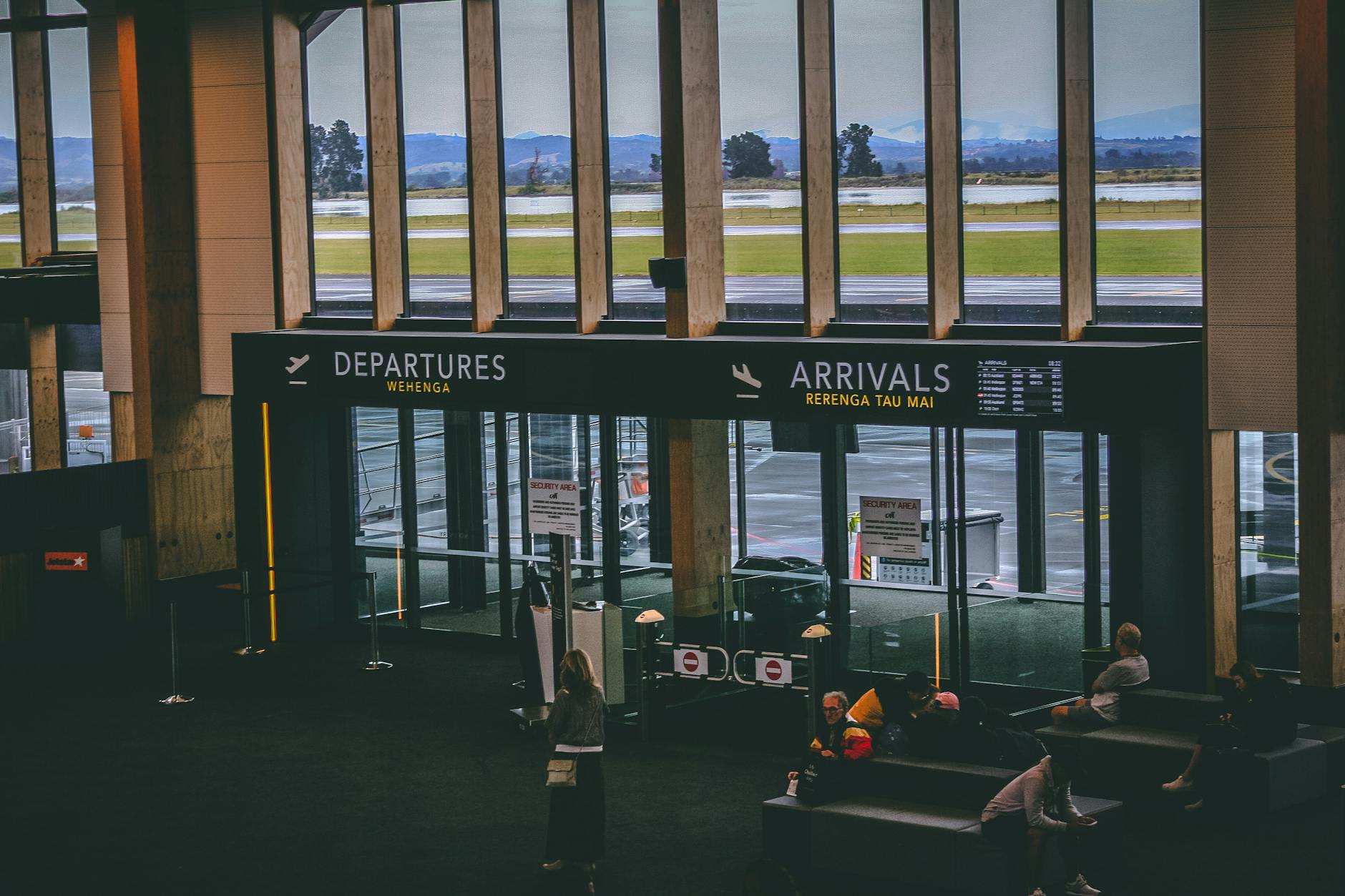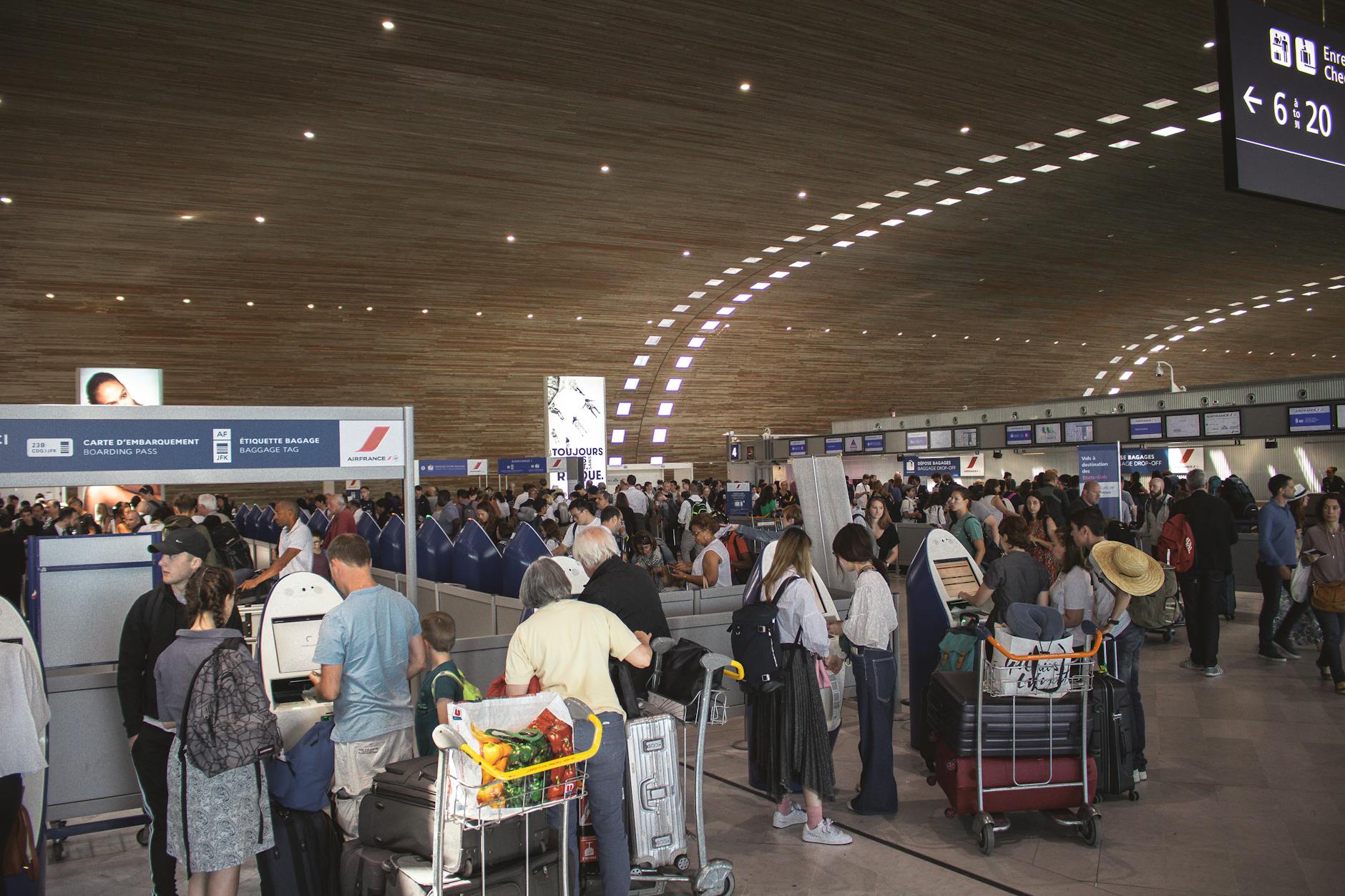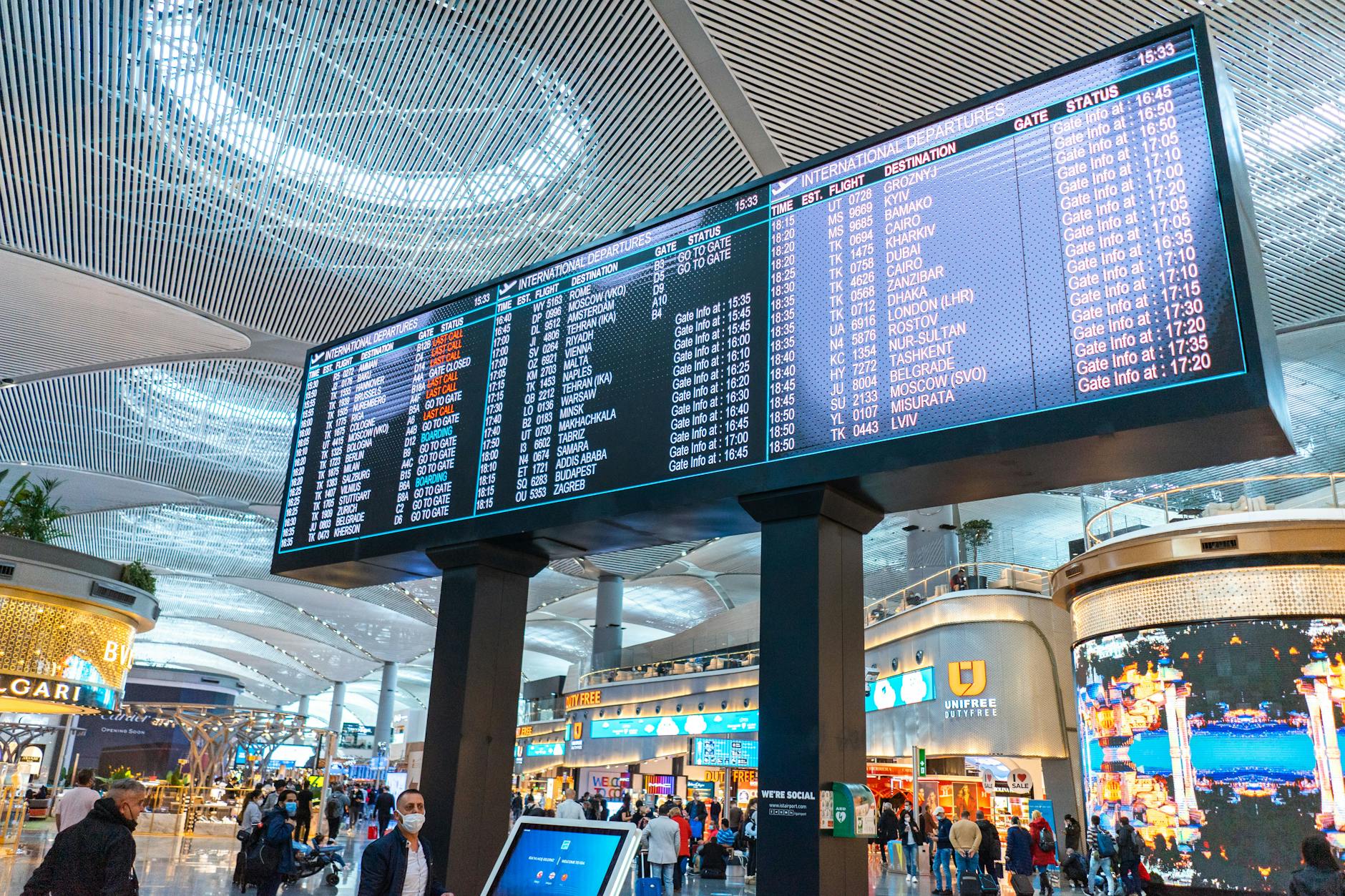Flying for the first time can feel overwhelming. The check-in process, airport security, and in-flight experience may seem confusing. However, with the right preparation, you can transform your journey into a smooth and enjoyable experience. Whether you’re traveling for business, vacation, or visiting family, these essential tips will help you navigate your first flight with confidence.
From packing wisely to understanding airport protocols, knowing what to expect reduces stress. This guide will walk you through every step of your journey, ensuring a hassle-free experience. Follow these 15 essential tips, and you’ll feel like a pro traveler in no time!
1. Book Your Flight Wisely
Booking your flight is the first and most crucial step of your journey. A well-planned flight ensures a stress-free travel experience. Choosing the right flight can make a huge difference in your comfort and convenience. Whether you’re looking for affordability, shorter travel time, or extra baggage allowance, comparing your options in advance is essential. Booking early also gives you a higher chance of securing the best seats and avoiding last-minute fare hikes. To get the most out of your booking, follow these key strategies:
- Choose the Right Flight: Select a flight that fits your budget and schedule. Compare different airlines to find the best deal. Direct flights help avoid layovers and reduce travel time.
- Book in Advance: Airfare prices increase closer to departure. Booking early gives you better prices and seat options.
- Use Fare Alerts: Sign up for price alerts from travel websites to get notified about ticket price drops.
- Pro Tip: Opt for early morning or late-night flights to avoid airport rush hours.
2. Check Travel Requirements
Flying internationally or even domestically often comes with certain travel requirements. These requirements can include passports, visas, vaccination records, or even customs declarations. Missing any of these can lead to unnecessary stress or, in the worst case, being denied boarding. To ensure your journey goes smoothly, it’s important to check and prepare your documents in advance. Here’s how to stay prepared:
- Verify Passport and Visa: Ensure your passport is valid for at least six months beyond your return date. Check if you need a visa for your destination.
- Research COVID-19 Guidelines: Some countries may have vaccination or testing requirements. Stay updated on the latest regulations.
- Carry Essential Documents: Print copies of your passport, visa, and travel insurance. Save digital copies on your phone.
- Pro Tip: Use a travel wallet to keep all your documents organized and easily accessible.
3. Pack Smart and Light
Packing can be one of the most stressful parts of travel. Overpacking can lead to extra baggage fees and make carrying your luggage difficult. On the other hand, underpacking might leave you without essential items. The key is to find a balance and pack only what you truly need. By using smart packing strategies, you can ensure a hassle-free experience at the airport and during your trip. Here’s how to pack like a pro:
- Follow Baggage Rules: Airlines have specific size and weight limits for carry-ons and checked baggage. Check these before packing.
- Use Packing Cubes: Organize your belongings efficiently by using packing cubes. This helps you save space and keep your items tidy.
- Pack Essentials in Carry-On: Keep important items like medications, a change of clothes, and travel documents in your carry-on in case of lost luggage.
- Pro Tip: Roll your clothes instead of folding them to save space and reduce wrinkles.

4. Arrive Early at the Airport
Rushing to the airport at the last minute can be stressful, and there’s always a chance of unexpected delays. Long security lines, check-in queues, or traffic jams can disrupt your schedule. Arriving early gives you enough time to complete all pre-flight procedures without stress. Whether it’s a domestic or international flight, getting to the airport ahead of time allows for a smoother travel experience. Here’s how to plan your arrival:
- Arrival Time: Ensure you reach the airport at least 2-3 hours before domestic flights and 3-4 hours early for international flights. This gives you ample time to check in, pass security, and reach your gate.
- Use Public Transport: Public transport helps you avoid parking delays and unnecessary costs.
- Pre-book Parking: If you drive yourself, pre-book airport parking for a hassle-free experience.
- Pro Tip: Check your airport’s website for real-time traffic updates and parking availability.
5. Check-in Online
Long check-in lines can be frustrating, especially if you’re in a hurry. Luckily, most airlines offer online check-in, which allows you to select your seat and receive your boarding pass in advance. This not only saves time at the airport but also helps you secure a better seat selection. If you’re traveling with only carry-on luggage, online check-in can allow you to go straight to security. Here’s why online check-in is a game changer:
- Save Time: Online check-in helps you avoid long lines at the airport.
- Select Your Seat: Choosing your seat in advance ensures a more comfortable flight experience.
- Print or Save Boarding Pass: Keep a digital copy of your boarding pass on your phone or print it as a backup.
- Pro Tip: Some airlines charge extra for seat selection. Choose your seat early to avoid unwanted fees.
6. Dress Comfortably
What you wear can significantly impact your travel experience. Airports involve a lot of walking, standing in security lines, and prolonged sitting, so dressing comfortably is key. Wearing the right clothing ensures that you remain at ease throughout your journey. Additionally, changing temperatures in airport terminals and airplane cabins can affect your comfort level, so it’s essential to dress in layers.
- Opt for breathable fabrics: Choose materials like cotton or moisture-wicking fabrics to stay cool and comfortable, reducing sweat and irritation.
- Wear slip-on shoes: These make it easier to remove your shoes during security checks, saving time and effort while keeping you comfortable during the flight.
- Layer up: Cabin temperatures can vary drastically, so bringing a light sweater or jacket will help you stay warm and cozy.
- Pro Tip: Choose breathable fabrics and wear slip-on shoes to make security checks easier and stay comfortable during the flight.

7. Know Security Rules
Airport security can be daunting for first-time flyers, but being aware of the rules will make the process much smoother. Security checkpoints have strict guidelines to ensure passenger safety, and knowing them in advance will save you time. Being unprepared can result in delays, unnecessary stress, and even additional screenings.
- Prepare your electronics: Laptops and large electronics need to be taken out of your bag for screening, so keep them in an easily accessible compartment.
- Follow the 3-1-1 rule for liquids: Liquids must be in containers of 3.4 ounces or less and placed in a quart-sized clear bag to comply with TSA regulations.
- Avoid wearing excessive metal: Belts, jewelry, and metallic accessories can trigger alarms, causing delays at security checkpoints.
- Pro Tip: Wear a watch with a world time feature to keep track of different time zones and avoid missing your flight.
8. Keep Essentials Accessible
Having your travel documents and important items within reach can save you from unnecessary stress. Scrambling to find your passport or boarding pass at the last minute can cause delays and frustration. Keeping your essentials organized ensures a smoother experience at check-in, security, and boarding.
- Use a travel organizer: Keep your passport, tickets, and IDs in a designated pouch for quick access, preventing last-minute searches.
- Make digital copies: Take photos of your important documents and store them securely on your phone or cloud storage in case of loss.
- Keep essential items in your carry-on pocket: Ensure your wallet, phone, and boarding pass are within easy reach when needed.
- Pro Tip: Carry a small notebook and pen to jot down important information or notes during your journey.
9. Follow Baggage Claim Procedures
Once you land, the next step is collecting your checked luggage. Understanding how baggage claim works will help you avoid confusion and long waits. Losing your luggage can be stressful, so taking the right precautions will make the process easier.
- Check the baggage carousel display: Screens in the baggage claim area indicate which carousel your luggage will be on, so check before waiting.
- Mark your bag for easy identification: Use a bright luggage tag, ribbon, or sticker to quickly spot your bag among others.
- Keep your baggage receipt handy: Some airports require you to show your baggage claim ticket to retrieve your bag, so have it accessible.
- Pro Tip: Use a luggage tracker device to monitor the location of your bags in real-time.
10. Stay Hydrated
Airplane cabins have very low humidity levels, which can lead to dehydration. Staying hydrated before, during, and after your flight is essential for your comfort and well-being. Dehydration can cause fatigue, headaches, and dry skin, so drinking water frequently is important.
- Bring an empty water bottle: You can fill it up after passing security to have water throughout the flight without spending extra money.
- Avoid caffeine and alcohol: These beverages can cause dehydration and make jet lag worse, leaving you feeling more tired.
- Use a moisturizer and lip balm: Dry air in the cabin can lead to dry skin and chapped lips, so keep a small moisturizer handy.
- Pro Tip: Eat hydrating foods like fruits and vegetables to help maintain your hydration levels.
11. Bring Your Own Entertainment
Flights, especially long-haul ones, can feel monotonous if you don’t have anything to do. Keeping yourself entertained will make the journey more enjoyable. In-flight entertainment is not always reliable, so bringing your own options is a good idea.
- Download movies or TV shows: Wi-Fi may not always be available on flights, so download entertainment in advance to avoid boredom.
- Carry a good book or magazine: Reading is a great way to pass the time and stay engaged, especially on long flights.
- Use noise-canceling headphones: They help reduce background noise, making your entertainment experience better and more immersive.
- Pro Tip: Bring a travel-sized board game or card game to play with your travel companions.
12. Know Your In-Flight Etiquette
Being considerate of other passengers ensures a pleasant flying experience for everyone. Knowing how to behave on a flight makes travel smoother for both you and your fellow travelers. Small courtesies can make a big difference in ensuring a comfortable journey for all.
- Respect personal space: Avoid leaning into other passengers’ seats or armrests, and be mindful of your movements.
- Use headphones for entertainment: Playing audio out loud can disturb those around you, so always use headphones.
- Recline your seat gently: Check behind you before reclining to avoid inconveniencing the person behind you.
- Pro Tip: If you need to get up frequently, choose an aisle seat to avoid disturbing other passengers.
13. Prepare for Jet Lag
Crossing multiple time zones can lead to jet lag, which affects sleep patterns and energy levels. Preparing in advance can help reduce its effects. Jet lag can make it difficult to enjoy your trip, so taking steps to adjust is essential.
- Adjust your sleep schedule before travel: Gradually shifting your bedtime closer to your destination’s time zone can help you adapt.
- Stay active on the plane: Walk around the cabin when possible to keep your circulation flowing and avoid stiffness.
- Expose yourself to natural light upon arrival: This helps reset your internal clock faster, making it easier to adjust.
- Pro Tip: Use a sleep aid like melatonin (after consulting with a healthcare provider) to help regulate your sleep cycle.

14. Be Aware of Duty-Free Allowances
Duty-free shopping at the airport can be a great way to save on taxes, but it’s important to know the rules regarding what you can bring back. Not knowing the limits can result in fines or confiscation of goods.
- Check customs regulations: Different countries have varying duty-free limits for alcohol, tobacco, and luxury goods, so research beforehand.
- Know liquid restrictions: Duty-free liquids must be sealed in a tamper-proof bag with the receipt attached to comply with security rules.
- Save your receipts: Some customs officers may ask to see proof of your purchases before allowing you to bring them in.
- Pro Tip: Make a list of items you want to buy duty-free to avoid impulse purchases and stay within allowances.
15. Stay Calm and Enjoy the Experience
Flying for the first time is an exciting adventure, and the best way to make the most of it is to stay calm and enjoy the journey. Air travel opens the door to new experiences and destinations, so embrace it with confidence.
- Arrive at the airport early: Rushing increases stress levels and can lead to mistakes, so give yourself plenty of time.
- Practice deep breathing: If you feel nervous, take slow, deep breaths to calm yourself and stay relaxed.
- Take in the views: Whether it’s the bustling airport or the aerial scenery, flying offers unique sights you don’t see every day.
- Pro Tip: Take photos and keep a travel journal to document your journey and create lasting memories.
For a step-by-step guide on planning your first international trip from India, watch this video and make your travel experience smooth and stress-free!
Conclusion
Taking your first flight can be a thrilling experience, and with the right preparation, it doesn’t have to be stressful. By following these 15 essential tips, you’ll navigate the airport and your flight with ease, ensuring a smooth and enjoyable journey. Each trip will build your confidence, making air travel feel like second nature.
Traveling by air opens up a world of exciting possibilities and new adventures. With this ultimate beginner’s guide to stress-free travel, you’ll be well-equipped to handle any situation that comes your way. Embrace the journey, and let your travels be filled with joy and discovery. Safe travels and happy flying!
FAQs
1. What should I do if I’m nervous about flying?
Stay calm by listening to music, reading, or watching a movie. Deep breathing exercises and focusing on positive thoughts also help reduce anxiety.
2. How early should I arrive at the airport?
For domestic flights, arrive at least two hours before departure. For international flights, arrive three hours in advance to allow time for security checks.
3. What items are not allowed in my carry-on bag?
Sharp objects, flammable items, and liquids over 3.4 ounces (100 ml) are not permitted. Always check airline-specific guidelines for prohibited items.
4. How do I find my gate at the airport?
After security, check the departure screens for your gate number. Follow airport signs, and if unsure, ask airline staff for directions.
5. What if my flight gets delayed or canceled?
Check with the airline for alternative flights. Many airlines offer rebooking options or compensation if delays are significant.

